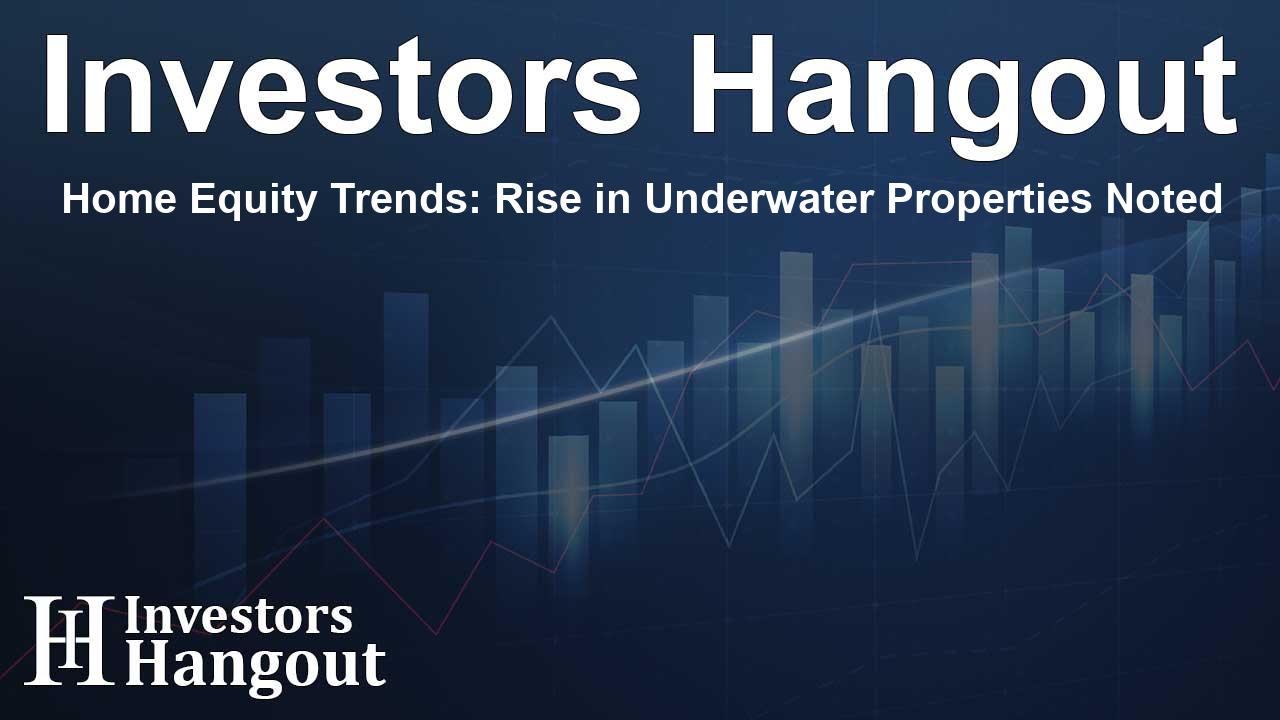Home Equity Trends: Rise in Underwater Properties Noted

Homeowner Equity Trends: A Closer Look
Nationwide, the current landscape of homeowner equity is painting a mixed picture. Approximately 46.1 percent of mortgaged residential properties are classified as equity-rich. This means that the combined estimated loan balances on these properties are no more than half of their market value. This figure reflects a slight decline from the previous quarter, which recorded 47.4 percent, and represents a drop from 48.3 percent compared to the same time last year.
National Home Prices on the Rise
Interestingly, even as homeowner equity has dipped, the national median home price has surged to a record high, now standing at approximately $370,000. This juxtaposition of rising prices alongside a decline in equity-rich statuses indicates a nuanced shift in the housing market, prompting many to analyze the factors driving these changes.
An Increase in Underwater Properties
Amidst the rising home prices, about 2.8 percent of mortgaged residential properties are deemed seriously underwater. Being underwater refers to instances where homeowners owe at least 25 percent more on their loans than their property's estimated market value. This is a slight increase from previous quarters, marking a rise from 2.7 percent in the preceding quarter and an upturn from 2.5 percent a year prior.
Declining Equity-Rich Homes Across States
In recent discussions, the CEO of a reputable property data firm has noted that the proportion of equity-rich homes is waning while the number of properties that are seriously underwater is increasing. This trend has been observed across 35 states, highlighting a potential recalibration within the housing market post an extensive period of property value appreciation.
State Highlights: Changes in Equity Status
The latest data indicates that the share of equity-rich homes has notably risen in several states, with 19 states showing positive growth compared to the previous quarter. However, there were marked declines in states like Florida and Arizona, where significant drops in equity-rich segments were recorded. This contrasts with areas such as Alaska and Illinois, where upward trends were observed.
Conclusions on Home Equity Trends
As we analyze the equity landscape, it becomes evident that fluctuations in homeowner equity reveal complex dynamics in real estate. Homeowners may face challenges, especially in markets where property values are fluctuating rapidly. This calls for careful consideration from both investors and potential homeowners looking to navigate the current market.
Frequently Asked Questions
What is considered an equity-rich home?
An equity-rich home is defined as having a loan-to-value ratio of 50 percent or lower, meaning the homeowner has at least 50 percent equity in the property.
What does it mean to be seriously underwater?
Being seriously underwater means that the homeowner owes at least 25 percent more on their mortgage than the market value of the property, reflecting a loan-to-value ratio of 125 percent or above.
What factors contributed to the rise in home prices?
The increase in home prices can be attributed to various factors, including low inventory levels, heightened demand, and economic conditions favoring property investments.
How has the home equity situation changed in recent years?
In recent years, home equity levels have experienced significant shifts, particularly following a peak in 2022, with current trends indicating a potential stabilization within the market.
Where can I find more information on home equity reports?
Home equity reports can be accessed through property data firms that analyze market trends, home valuations, and equity assessments across various regions.
About The Author
Contact Dominic Sanders privately here. Or send an email with ATTN: Dominic Sanders as the subject to contact@investorshangout.com.
About Investors Hangout
Investors Hangout is a leading online stock forum for financial discussion and learning, offering a wide range of free tools and resources. It draws in traders of all levels, who exchange market knowledge, investigate trading tactics, and keep an eye on industry developments in real time. Featuring financial articles, stock message boards, quotes, charts, company profiles, and live news updates. Through cooperative learning and a wealth of informational resources, it helps users from novices creating their first portfolios to experts honing their techniques. Join Investors Hangout today: https://investorshangout.com/
The content of this article is based on factual, publicly available information and does not represent legal, financial, or investment advice. Investors Hangout does not offer financial advice, and the author is not a licensed financial advisor. Consult a qualified advisor before making any financial or investment decisions based on this article. This article should not be considered advice to purchase, sell, or hold any securities or other investments. If any of the material provided here is inaccurate, please contact us for corrections.
